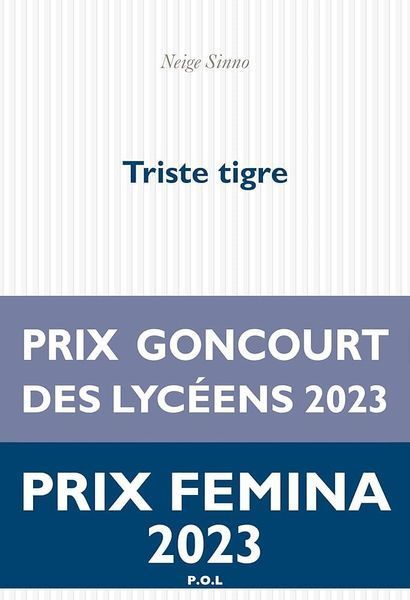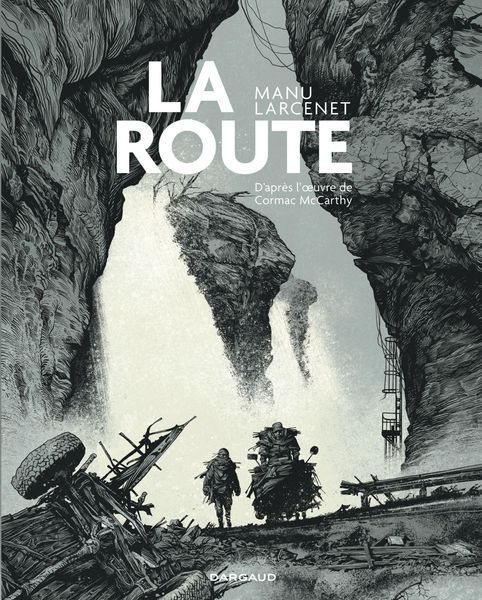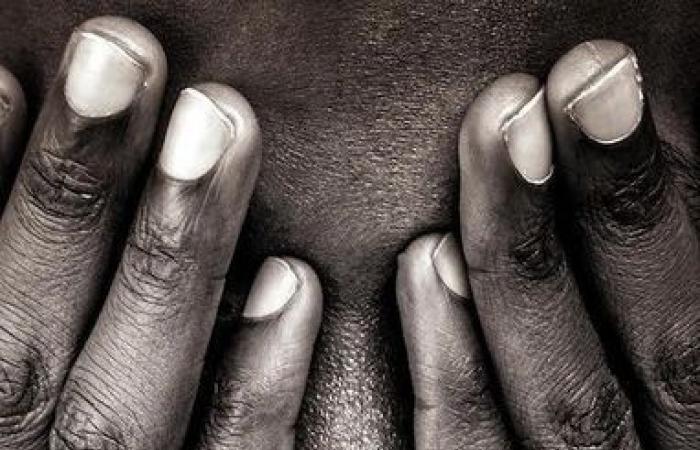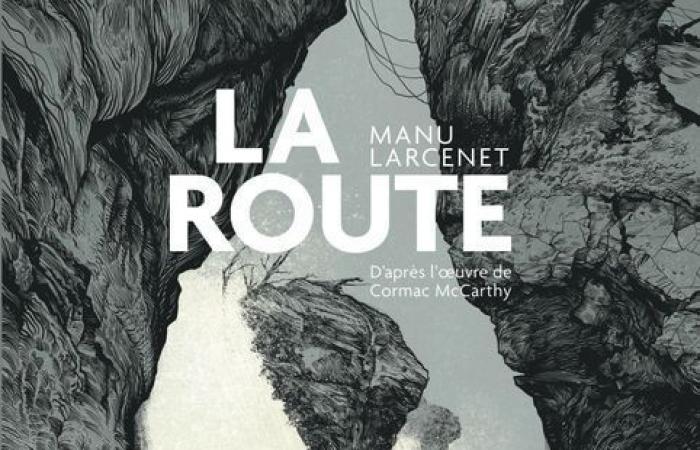The price of the novel
“Watch over her”, by Jean-Baptiste Andrea (The Iconoclast)
What a hair-raising destiny! When we selected it, in mid-August, to compete in the Grand Prix des Lectrices ELLE, no one knew that “Veiller sur elle” would begin its career with a brilliant Fnac prize, and continue it in November with a resplendent Goncourt prize. , collecting tens of thousands of readers in the process. The jurors, however, were not mistaken, who from the outset praised this book like no other. Because, beneath its classic style, this historical and political love novel broods over a reflection on art and those who practice it, on history and those who make it, on love and those who live it. Mimo, the brilliant sculptor, Viola, his unwavering accomplice, and a pietà with sensual and mysterious powers are the three protagonists of this fresco which made the hearts of readers palpitate. Punctuated with unforgettable moments (Jean-Baptiste Andrea is a filmmaker and screenwriter in addition to being a novelist, and his sense of dialogue and scene is felt on every page), this novel where it is a question of chaste love, of fascism which rises, the power of art and the compromise of ideals can be read in multiple ways. Like an inventive epic, yes, but also like the telling of our contemporary obsessions, or like the dissection of a XXe century which contained the seeds of the great questions that trouble us today. It is to these resonances that the book undoubtedly owes its resounding success. This is why SHE watches over Jean-Baptiste Andrea.
©Press
The price of thriller
“The Blood of the Innocents” by SA Cosby, translated from English by Pierre Szczeciner (Sonatine Éditions)
Less than ten years have passed since his first novel. This is enough for this fifty-year-old with a good-natured appearance, but a bloody imagination, to establish himself as one of the great figures of contemporary American detective novels. Dubbed by his illustrious colleagues, Dennis Lehane and Stephen King, here he is today celebrated by our jurors, carried away by his sense of suspense and touched by the complexity of the characters in this violent but also incredibly sweet novel. In addition to the American South with its omnipresent slavery past and inventive and horrifying crime scenes, Cosby’s signature is also the art of composing tender and feminist male heroes and heroines cleverly designed so as not to be “doers”. -value of the main character”. Cosby takes care to tell the story of complex, rich and respectful male-female relationships. A utopia ? Maybe. This specificity sets it apart in the world of thrillers still full of testosterone. “I believe that writing is a tool for entertainment, but should also be used to talk about important things, and healthy masculinity is something that is close to my heart,” he says. Raised by a single mother in the state of Virginia, where he still lives, this bearded colossus with a thunderous laugh evokes this central figure, now deceased: “She told me, from childhood, that I could cry, show my weakness and my sorrow. » His grandmother, a housewife and avid reader, with a sense of humor that he seems to have inherited, passed on to him a taste for books. His 26-year-old niece inspires him, his partner navigates with him through the joys and pangs of this late and unexpected success. After years of rejection letters from publishers who praised his style while doubting whether readers could “identify with the characters” (Cosby is black in a society marked by racism), he has fun without bitterness from the fact that the industry today demands “Cosby-style novels” and is delighted that its success opens doors for other African-American crime writers. “The publishing world is not a meritocracy,” he slips. As long as books like mine continue to make money, they will have a place in the industry. »
©Press
The price of nonfiction
“Sad Tiger” by Neige Sinno (POL)
Since the publication, on August 17, of her book “Triste Tigre”, she has won everything. The attention of the press, booksellers and readers first – more than 300,000 copies to date. Attention from all over the world: after receiving the Femina Prize and the Goncourt des lycéens, the book won the Strega Europe Prize in Italy, the Quebec Booksellers Prize, seventeen international Goncourt choices (from India to Cameroon , from the United States to Turkey), and is currently being translated into twenty-six languages. Our jurors and the public never cease to express their gratitude for this harsh and spectacularly intelligent text on incest, monsters, victims and life.
SHE. “Sad Tiger” has received numerous awards since its publication. What do all these awards inspire in you?
SNOW SINNO. I have the feeling of a collective effort to get this book read. Maybe it’s a book that isn’t obvious, that can’t stand on its own, and I’m lucky that many people want it to circulate. These reader prizes, like the Grand Prix des Lectrices ELLE or the Goncourt des lycéens, are a huge gift.
SHE. This “not easy” book nevertheless sold spectacularly well. How do you explain it?
NS The reaction of readers was initially a great surprise to me. There was an incredible word-of-mouth phenomenon surrounding my text. But it didn’t happen alone. There were the first journalists – at the beginning, they were women – who defended the text, and then the booksellers, the prices, the radios… I have the impression that many people were keen to do so. read this book. For example, I have often been told that we were afraid to start reading, but that we had been convinced by a librarian, a friend, a text in a reading blog… Booksellers from Nice had put a note in the window which said: “She had the courage to write it, we may well have the courage to read it. » It is extraordinary that this force that I tried to put into writing becomes that of these women who seize it and who transmit it to others, through a book which not only produces a reading experience but also a life experience.
SHE. As you point out, this moment of liberation from listening to incest is primarily carried out by women, while a third of incest victims are little boys… Where does this apparent contradiction come from?
NS Invisible dominations have since their origins been a concern of feminist groups – today transversal – which reveal discrimination linked to gender but also to race, to class… Historically, the discourse on denunciation and then awareness of the seriousness of incest were therefore put in place by feminist movements. But this book is written in the awareness of the invisible presence of an army of shadows, of a multitude of people, men and women alike, who recognize themselves in it. There are also many men who come to me during meetings to discuss this subject. This humiliation, this impression that I describe of having been attacked in my humanity, in my ability to live, in my relationship to language, in my life in general, is quite universal. It is important to support the words of incest men and to find a space to welcome them.
SHE. More generally, how do you experience the success of “Triste tigre”?
NS It’s hard to say because it’s still early for me. I have the impression of being in a whirlwind that I still have difficulty analyzing. I feel a lot of happiness, and I am very proud, but I must recognize that there is a paradoxical aspect, for me, of having written a book that I did not want to write, while knowing from the start that it there was a possibility of making an important contribution to the visibility of the phenomenon of incest. When I appear in the media, I’m there to talk about it. I accepted it and I assume it, but it does not come without worry, bitterness at the idea of having accepted this immense responsibility.
SHE. By telling your story, you inevitably made those around you into characters in the book. How did he handle the attention the book received?
NS It is one of the particularities and one of the risks of autobiographical writing to involve people who are alive and for whom the publication of the text will have consequences. I don’t really want to speak for them, but for the moment it has given rise to rich exchanges with those around me, which are not without difficulties. My mother accompanied me in her own way during this process, she is doing her own journey, which is also trying to understand what happened to her, as a mother who did not see. Our conversations remain very painful, but as it supports the approach of the book… It is very hard and, at the same time, it shows us that communication is possible, and that is already immense.
SHE. You live in Mexico, a country plagued by violence. What is your daily life like there?
NS I live in the countryside, an hour from Morelia, in a traditional village, very peaceful and very gentle, and at the same time very violent. Mexico is a country strongly marked by sexist and sexual violence, forced disappearances, and feminicides. It is a very Catholic country, where the taboo is immense and where it is perfectly integrated that women and children are objects in the service of the patriarchy. The publication of the book in Mexico is very important for me, I hope that it will also have a little visibility there and that it will perhaps allow us to talk a little about this systemic violence.
SHE. You write in French, live in Spanish and work a lot in English, having done your thesis on three North American short story writers. How does your multilingualism impact your writing?
NS I often wonder about this subject. It is a wealth and at the same time a destabilizing factor to live and write in several languages. You have to accept losing a little of your French, while other languages will never reach the level of your native language. I deal with that, with this imperfect language of mine and which clearly highlights the difficulty in really saying what we are trying to say. This ideal of putting words to an unspeakable experience will never be achieved. And I have no other alternative than to trust those who will fill the silences of the text with their own thoughts, the questions of their existence, their own quest for truth.

©Press
The 2024 Comics Grand Prix
“The Road”, adaptation of Cormac McCarthy by Manu Larcenet (Dargaud)
The original novel, of rare power, was insurmountable, it was believed. This was without counting on the genius and darkness of the designer Manu Larcenet, winner of our third Grand Prix de la BD for his adaptation of “La Route”, by the American writer Cormac McCarthy, published by Dargaud. Our twenty-five jurors praised this album of astonishing beauty, a harsh and poignant story of a father and his son, survivors in an apocalypse setting. Next week, we’ll hit the road with Manu Larcenet, in ELLE. Surprise…

©Press









